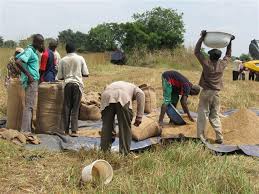Rural youth programmes in agricultural extension have evolved significantly from their colonial-era origins. Today, these programmes are designed to achieve educational, economic, social, and recreational goals.
Their core focus is on empowering the youth educationally, socially, and economically, particularly in rural communities.
Read Also: Gumboro Disease: Symptoms and Prevention
Educational Objectives of Rural Youth Programmes in Agricultural Extension

The educational objectives of rural youth programmes in agricultural extension are to:
1. Develop good character, self-confidence, and citizenship;
2. Develop good leadership skills;
3. Appreciate that there is pride and dignity in manual labour;
4. Teach the youth how to keep accurate records and accounts in agriculture and other businesses; and
5. Teach the youth how to solve their problems in a systematic manner and by cooperative means (Adedoyin, 2005; Ovwigho and Ifie, 2009; Savile, 1965).
Economic Objectives of Rural Youth Programmes in Agricultural Extension
The economic objectives of rural youth programmes in agricultural extension are to:
1. Improve their level of skills in agriculture, mechanics, home management, health, and hygiene;
2. Encourage youths to engage in small-scale industries;
3. Prevent idleness and provide opportunities for economic empowerment and self-reliance;
4. Increase production of agricultural goods and other services in rural areas;
5. Facilitate the production and marketing of various vocational trade items in rural areas;
6. Enable the youth to acquire entrepreneurial, profitability, and communication skills; and
7. Increase the efficiency of agricultural production through the use of proven technologies (Adedoyin, 2005; Ovwigho and Ifie, 2009; Savile, 1965).
Read Also: Vaccination Program for Poultry Chickens
Social Objectives of Rural Youth Programmes in Agricultural Extension

The social objectives of rural youth programmes in agricultural extension are to:
1. Inculcate good moral and citizenship training in the individual with a sense of civic pride;
2. Enable youth to become patriotic members of the community;
3. Develop mutual respect and trust among both the young and the old; and
4. Learn the value of extension work and cooperate with the extension service (Adedoyin, 2005; Ovwigho and Ifie, 2009; Savile, 1965).
Recreational Objectives of Rural Youth Programmes in Agricultural Extension
The recreational objectives of rural youth programmes in agricultural extension are to:
1. Appreciate the aesthetic value of plants, animals, and other natural resources (this refers to training youths to love and value plants, animals, and natural resources);
2. Teach the youth how to use their leisure time more satisfactorily;
3. Teach youth how to make good use of their time in handicrafts and other profitable trades (this involves training the youth to use their time productively instead of engaging in activities harmful to societal well-being);
and
4. Develop good health habits (this involves training the youth to adopt healthy habits and maintain personal cleanliness) (Adedoyin, 2005; Ovwigho and Ifie, 2009; Savile, 1965).
Do you have any questions, suggestions, or contributions? If so, please feel free to use the comment box below to share your thoughts. We also encourage you to kindly share this information with others who might benefit from it. Since we can’t reach everyone at once, we truly appreciate your help in spreading the word. Thank you so much for your support and for sharing!

